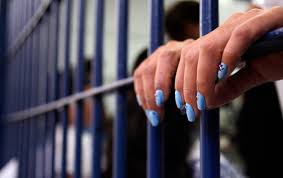Sara Milano’s Summary
In the chapter “How to Make Prisons Disappear” I was continually heartbroken by Shirley Tan’s recollection of her own immigrant story and relationship to her undocumented status. Freddy describes that their family “were model citizens, active in her church, and they presented heteronormative family dynamics as best they could to defend their right to stay.” I am interested in the effects of immigration on self and culture. Tan’s need to assimilate to American standards of normality and family reflects a need to prove to herself and others that she belongs. Padilla, on the other hand, has made mistakes in his life and refuses to divorce himself from his cultural ties. This makes him an unattractive client to defense attorneys and an unsympathetic case. Why are immigrants held to higher standards of morality than are naturalized citizens? I think one dimension of white privilege that is not explored often is the ability to screw up without having your mistakes and short comings attributed to your entire racial group. In class Dr. Simpson and students have shared their experience growing up in a family that was hell-bent on defying negative ideas about black people. The burden of being exceptionally hygienic, smart, heteronormative, ethical, etc falls on non-white people and those incarcerated to “prove” their worth disprortionately.
In the next chapter about masculine-identifying people incarcerated in women’s prisons, Freddy mentions that one of the early markers for gender dysphoria all members of the group shared was a tomboy like style and discomfort in dressing in feminine ways. I believe this can be an early outlet for people born biologically as women but who do not identify with this as they age. I am someone who identifies with their biological gender but sometimes feels uncomfortable embodying the most “feminine” expressions of it. Growing up I believed being a “girly girl” was an unattractive adjective and implied weakness or irrationality. How much of people’s desire to shirk displays of femininity is influenced by sexism? I understand that for the incarcerated people in question this was an outlet for them to express the gender with which they felt most aligned. But for others like myself, why does embracing femininity so often feel like you are giving up power?
